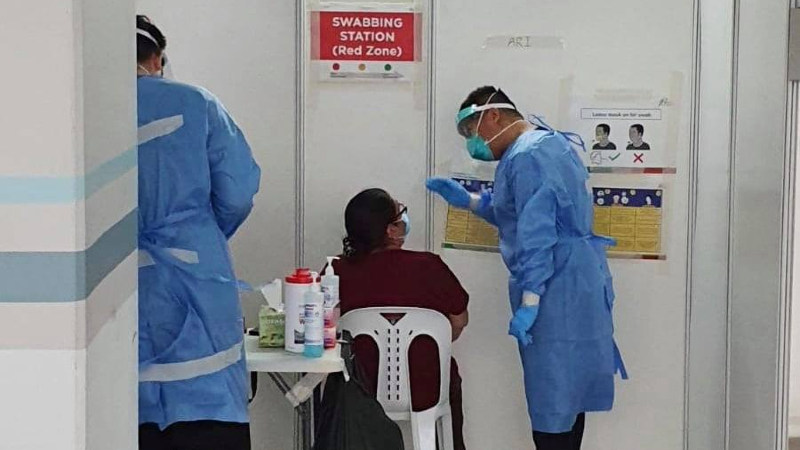The Ministry of Health will review its COVID-19 protocols for individuals with special needs after several complaints from caregivers surfaced online.
Trained professionals and volunteers from the National Council of Social Services may soon be employed to test persons with special needs for the coronavirus, Parliamentary Secretary Rahayu Mahzam said this morning, while Certis Cisco auxiliary police officers have been advised to be more “mindful” when dealing with such individuals. The ministry will also consider alternative testing methods and improve communication between agencies overseeing the quarantine process.
“We recognize that the [swabbing] process and the quarantine can be more challenging for persons with special needs as they may not be comfortable with unfamiliar people or environment. My colleagues at MOH will work to improve our processes,” her statement said, adding that none of the COVID-19 testers was “specially trained to deal with persons with special needs.”
The complaints posted to social media were mostly linked to testings for people who may have been affected by the COVID-19 outbreak at the MINDSville@Napiri centre for persons with intellectual disability. More than 30 cases have been reported there since June 2.
Cindy Chee, a mother of an 18-year-old son with autism, said she was concerned about her son not being exempted from the swab test. This resulted in her son acting in distress. Chee said her son was hitting the wall and trying to escape from the swabbing tent. Her online post is no longer publicly available.
Special education teacher Amylia Koh said on Monday that she was “frustrated” at how the authorities had handled her brother, a resident of MINDSville@Napiri. The brother was ordered on June 3 to go into quarantine at a separate facility instead of his own home, Koh said. Officers also failed to list Koh as a caregiver and initially forbade her from accompanying her brother during quarantine.
“Not only was the team unprepared to manage [quarantine order] cases of persons with special needs, but also demonstrated a severe lack of compassion and understanding when caregivers tried to enlighten them on the disability and their needs,” she wrote.
During the swab test, officers on the ground declined her offer to help swab her brother and only allowed Koh to assist after they struggled for 30 minutes, she said.
“All the swabbers took turns trying to swab my brother, who became increasingly frustrated and was on the brink of an aggressive meltdown,” Koh said. “His agitation, discomfort, and frustration were apparent, brought about by his inability to comprehend the situation, and his being surrounded by unfamiliar masked faces, away from his caregiver.”
Koh previously suggested to the Ministry of Health to use less invasive testing methods like the breathalyzer for people with intellectual disabilities, but this “fell on deaf ears,” she said.
Other stories you should check out:
Ang Mo Kio cat slashing: Man charged with animal cruelty; sent for psychiatric evaluation
Gurmit Singh fined and temporarily banned from driving after speeding at 131kmh
Ngee Ann Polytechnic suspends racist lecturer who confronted interracial couple in viral video




